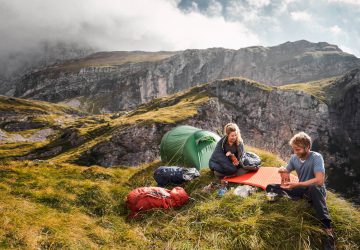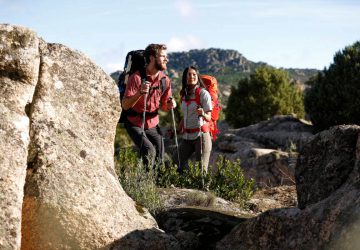All about hiking, trekking, climbing and camping
A guest article by Linda Zimmermeier Wild nature, incredible panoramic views, tranquillity and switching off far away from the stresses
Winter hiking is becoming increasingly popular. No wonder, because is there anything better than wrapping up warm and setting off
Winter hiking with children. Is that even possible? It’s definitely possible and even very good, because most children love snow.
Facts from the outdoor world
The sky is darkening, the clouds are growing bigger and within fifteen minutes a violent thunderstorm
Sleeping under the stars: there’s no other way experiencing nature more intense. That’s why bivouacking
With a Canadian canoe you move smoothly and relaxed over lakes and gentle rivers. This spacious canoe has plenty
What makes a good camping tent and what do you have to watch out for in a trekking tent
As soon as the cold season bows out, the time has come: the hiking season starts. Germany provides quite
Cows and juicy pastures mirror the alps like the mountains itself. Though, sometimes, there are accidents when hikers and trekking-enthusiasts












